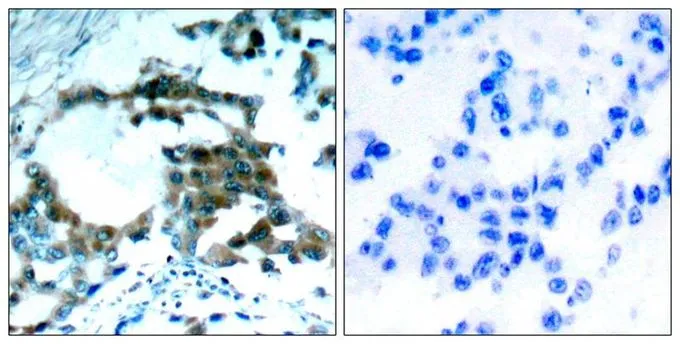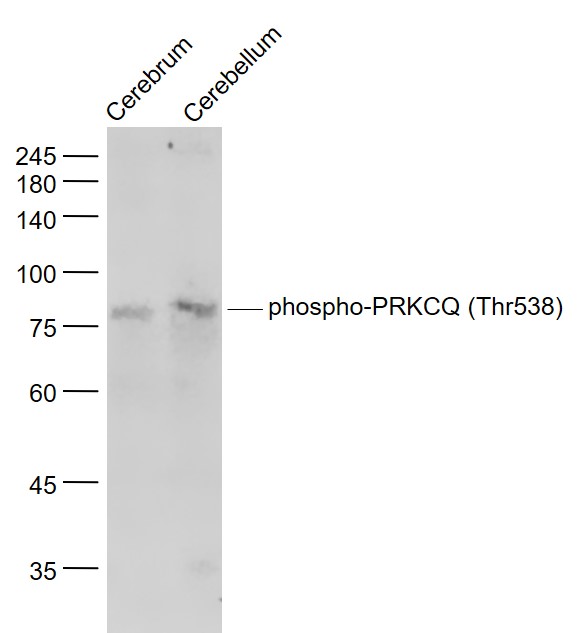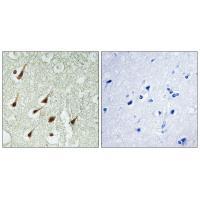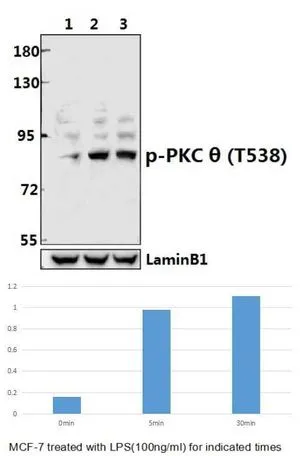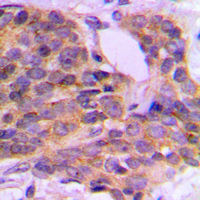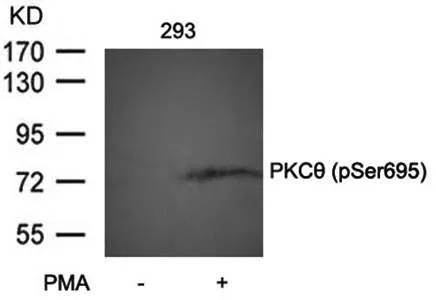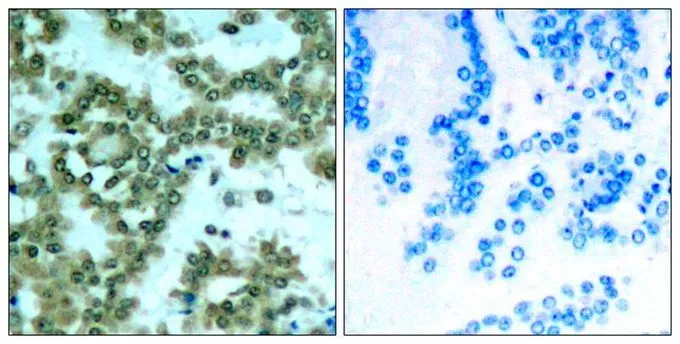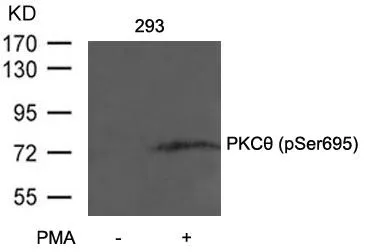
WB analysis of extracts from 293 cells untreated or treated with PMA using GTX50223 PKC theta (phospho Ser695) antibody.
PKC theta (phospho Ser695) antibody
GTX50223
ApplicationsWestern Blot, ImmunoHistoChemistry, ImmunoHistoChemistry Paraffin
Product group Antibodies
ReactivityHuman
TargetPRKCQ
Overview
- SupplierGeneTex
- Product NamePKC theta (phospho Ser695) antibody
- Delivery Days Customer9
- Application Supplier NoteWB: 1:500. IHC-P: 1:50-1:100. *Optimal dilutions/concentrations should be determined by the researcher.Not tested in other applications.
- ApplicationsWestern Blot, ImmunoHistoChemistry, ImmunoHistoChemistry Paraffin
- CertificationResearch Use Only
- ClonalityPolyclonal
- Concentration1 mg/ml
- ConjugateUnconjugated
- Gene ID5588
- Target namePRKCQ
- Target descriptionprotein kinase C theta
- Target synonymsPRKCT, nPKC-theta, protein kinase C theta type
- HostRabbit
- IsotypeIgG
- Protein IDQ04759
- Protein NameProtein kinase C theta type
- Scientific DescriptionProtein kinase C (PKC) is a family of serine- and threonine-specific protein kinases that can be activated by calcium and the second messenger diacylglycerol. PKC family members phosphorylate a wide variety of protein targets and are known to be involved in diverse cellular signaling pathways. PKC family members also serve as major receptors for phorbol esters, a class of tumor promoters. Each member of the PKC family has a specific expression profile and is believed to play a distinct role. The protein encoded by this gene is one of the PKC family members. It is a calcium-independent and phospholipid-dependent protein kinase. This kinase is important for T-cell activation. It is required for the activation of the transcription factors NF-kappaB and AP-1, and may link the T cell receptor (TCR) signaling complex to the activation of the transcription factors. [provided by RefSeq, Jul 2008]
- ReactivityHuman
- Storage Instruction-20°C or -80°C,2°C to 8°C
- UNSPSC12352203

